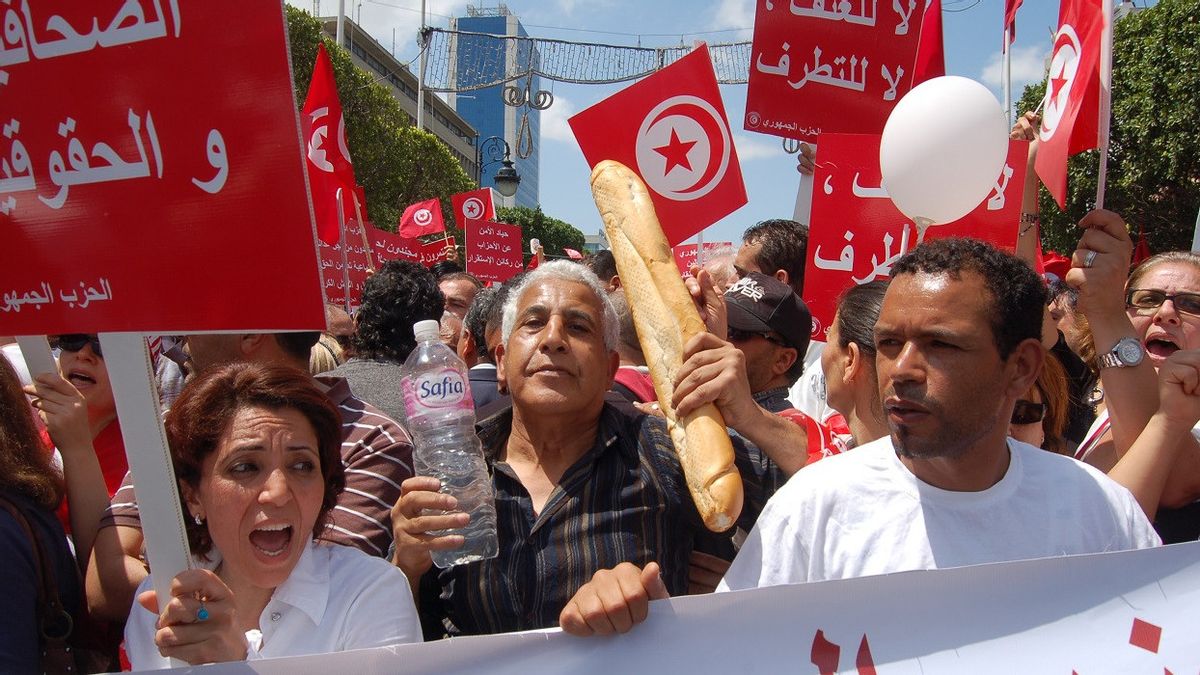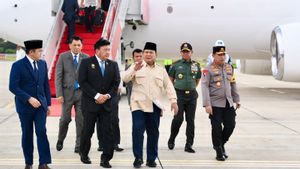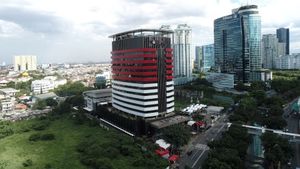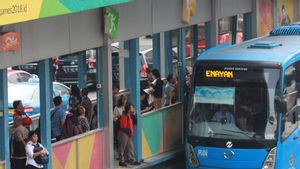JAKARTA - United States Secretary of State Antony Blinken has urged Tunisian President Kais Saied to take action that will return the country "on the path of democracy," after Sunday's seizure of power by his government.
President Kais Saied has called for a national emergency over the pandemic and bad governance, sacking the prime minister, cabinet members, freezing parliament and removing the head of a national television station which was greeted by street demonstrations, but was seen by his political opponents as a coup.
Foreign Minister Antony Blinken spoke with President Saied last Monday. In an interview given to Al Jazeera in Arabic on Thursday, according to a transcript provided by the Ministry of Foreign Affairs, Foreign Minister Blinken feared President Saied's steps were 'against the constitution'.
Four days after President Saied announced his move, he has yet to appoint a new prime minister or provide further details on the steps he will take, referring to parliament's 30-day freeze.
On Thursday he appointed his national security adviser to take over the Interior Ministry, but pledged to uphold rights and freedoms.
"No one has been arrested. No one has been deprived of their rights," he said, as quoted by Reuters on Friday, July 30.

However, this statement has left parties in Tunisia and the wider international community scrambling to interpret the crisis that has left Tunisian democracy at a crossroads.
Saied's supporters have given his intervention as welcome start as the 2011 revolution, after years of economic stagnation under a political class that prioritized personal gain over national gain.
However, Parliament Speaker Rached Ghannouchi, who is also chairman of the moderate Islamic party Ennahda, was quick to label it a coup, language repeated by the other three major parties in parliament.
As President, Saied came from an independent path, without the machinery of political parties or formal organizations behind him. However, he had the support of the army who rushed to surround the parliament and government at his behest.
Saied's critics fear he may be pushing toward a more authoritarian stance, even though he has denied the coup and vowed to uphold the rights and freedoms of citizens.
"There are two paths, either a reversal of the revolution or an opportunity to relaunch its democracy with political reforms, including a new electoral law and politics," said Tunisian politics professor Nizar Makni.

Regardless of the current political situation, President Saied can breathe a sigh of relief that civil society is behind him. Tunisia has strong civil society organizations, including trade unions of millions of people, capable of wielding great influence over the authorities by mobilizing on the streets or by shutting down the economy, to support democracy.
The union, UGTT, did not denounce Saied's move but encouraged him to remain in the constitution. On Thursday, UGTT officials said they were preparing a roadmap for exiting the crisis that they would present to President Saied.
A poll published in Tunisian media on Wednesday by Emhrod, a survey company whose results are trusted and recognized, said nine out of 10 Tunisians supported his actions, including in political, economic reform measures and dealing with the COVID-19 pandemic. However, people still want to see the results.
"There are no blank checks. He (the president) has to come out every day to tell us what he is going to do," said Hatem Belkadhi, a man speaking on a central Tunis street.
The improvement of the economy is not an easy challenge for President Saied. Hoping for foreign loans, Saied must first improve his fiscal position to a better state.
Meanwhile, the UGTT is ready to mobilize the masses against movements against the poor, including cutting subsidies or reducing the public wage bill. Meanwhile, advisers to President Saied are considered to be inexperienced in making difficult decisions in dealing with the turmoil, according to Tarek Megerisi of the European Council on Foreign Relations.
The English, Chinese, Japanese, Arabic, and French versions are automatically generated by the AI. So there may still be inaccuracies in translating, please always see Indonesian as our main language. (system supported by DigitalSiber.id)













